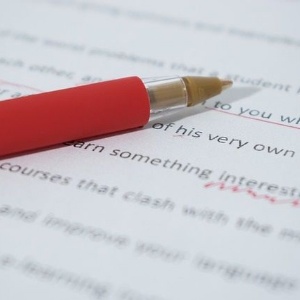
Essay Writing Advice For Sixth Formers
Published on 09/04/18

Essay writing is an essential skill needed to prosper on a number of A Level courses. Unfortunately, it’s a skill that many students struggle to master. Honing your essay writing abilities will have benefits beyond sixth form and into university.
Here, we take a closer look at the academic writing tips you can call upon for current essays and your higher education assignments to come.
Understand what makes a good essay
The University of Cambridge answers the question of what makes a good essay:
“It's true that supervisors often have different views on what constitutes a 'good' essay but usually only articulate them when something isn't working in your writing. If your essay allows you to say what you want to say clearly and effectively, then the technicalities of how the effect was achieved generally become invisible. Much of the content rests on the fact that the essays you wrote in school/college differ from University essays. One big difference is that an A Level essay is usually your last word on a subject, following teaching.”
Understanding what makes a good essay will help you plan with purpose. As well as being used as an important homework tool, essays help you demonstrate your ability in several ways. You must understand the title and identify appropriate material to read and evaluate. You need to select the right reference sources, construct an effective argument and arrive at a considered conclusion. As a result, your essay will validate a vast range of academic skills.
Use a solid structure
 The beginning, middle, and end structure really does work. Whilst essays can be utilised to explore a diverse selection of subject matter, now isn’t the time to be unconventional with its structure. Start with a clear introduction. Use this section to give a concise summary of what your essay will be about and what can be expected from the forthcoming body content.
The beginning, middle, and end structure really does work. Whilst essays can be utilised to explore a diverse selection of subject matter, now isn’t the time to be unconventional with its structure. Start with a clear introduction. Use this section to give a concise summary of what your essay will be about and what can be expected from the forthcoming body content.
The body of your essay, or the middle, should start with some background information to expand on the overview included in your introduction. The body should also be used to explain and develop arguments, providing detailed analysis to support your points accurately and appropriately. A good essay is nothing without a well-supported conclusion. This will be where you summarise and evaluate the arguments described throughout the body of your essay. Go beyond the one-or two-line afterthought that essay conclusions usually are. Reference key points and arguments before arriving back at how these answer the original question posed by your essay title.
Be critical AND creative
By creative we don’t mean you have to sugar coat the facts! It’s important to realise that essays don’t have to be boring, by-the-numbers pieces. Explore your title and wider topic more inventively, seeing your subject from both sides and providing critical analysis to develop ideas. Go above and beyond the teachings that have been learned in class by conducting your own research, using a wider range of resources to really get to the core of your topic.
Learning how to PEE (Point, Explain, Evidence) is a tactic widely used in essay writing, but learning how to PEEL is where it counts. You should make your Point, Explain this point, support it with Evidence, and make sure the point Links in with the topic for better cohesiveness.
Don’t forget to proofread
Don’t let your brilliantly researched and critically analysed subject matter fall victim to bad spelling and grammar. Spelling mistakes and grammatical errors are distracting. With a bit of proofreading you can ensure your points are put across with clarity.
After your essay is finished, don’t jump into proofreading straight away. Instead, leave two to three days between essay writing and proofreading for maximum engagement. As well as proofreading it yourself several times, ask a family member or friend to cast a fresh pair of eyes over it.